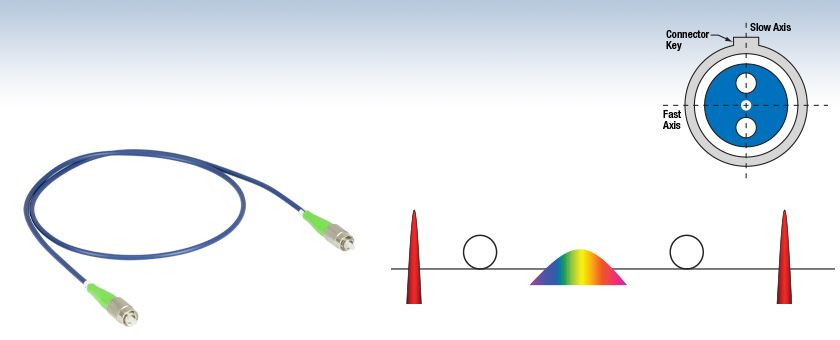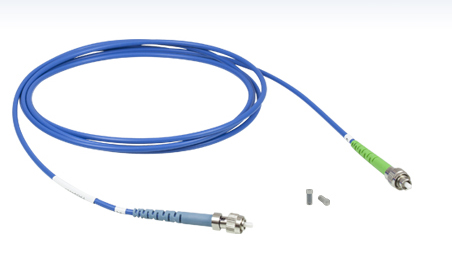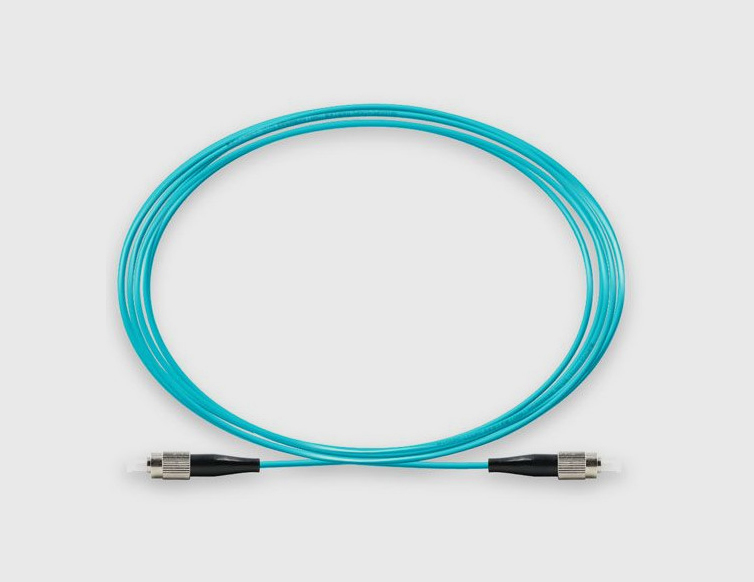Polarization-maintaining fiber is a fundamental component in fiber optics. It is often abbreviated as PMF or PM fiber. In simple terms, it is a single-mode optical fiber that allows the linearly polarized light to preserve its polarization state while propagating across it, given that the linearly polarized light is properly launched into the fiber. Consequently, there is negligent or no cross-coupling of optical power between two polarization modes. This type of optical fiber is essential for applications where polarization preservation is important.
Now that you know what polarization-maintaining optical fiber is, let’s dive into how it works.
How Polarization-Maintaining Optical Fiber Works
To make polarization-maintaining optical fiber work, a systematic linear birefringence is intentionally introduced. It allows two well-defined polarization modes to travel across the fiber with very different phase velocities.

PM fiber is often characterized by its beat length for a particular wavelength, represented as Lb. The beat length is the distance over which the wave in one mode experiences an additional delay of one wavelength when compared to the other polarization mode. Hence, of the length Lb /2 is considered equivalent to the half-wave plate.
of the length Lb /2 is considered equivalent to the half-wave plate.
Now consider the fact that random coupling might occur between two polarization states over a significant length of PM fiber. In such a scenario, at the very initial point 0 along with the fiber, the wave in polarization mode 1 induces amplitude into mode 2 at some phase.
However, at point ½ Lb along with the fiber, the same coupling coefficient between the two polarization modes induces an amplitude into mode 2 which now becomes 180 degrees out of phase with the wave coupled at point 0 and hence results in cancellation.
Now, at point Lb along with the fiber, the coupling is again in its original phase but then, at 3/2 Lb it will get again out of phase. This phenomenon will keep occurring so on.
Hence, the chances of coherent addition of wave amplitudes through cross-coupling over distances that are larger than Lb get eliminated. Most of the power of the wave remains in its original polarization mode and therefore, exits the fiber in the same mode as well.
Thus, optical fiber connectors that are used for PM fibers are specifically used in a way so that the two polarization modes remain aligned with each other and exit in a specific orientation.

Remember that polarization-maintaining fiber doesn’t function like a polarizer as it doesn’t polarize the light. It simply maintains the linear polarization of the launched linearly polarized light that aligns with one of the fiber’s polarization modes. If a linearly polarized light is launched into the fiber at a different angle, it will excite both polarization modes and will allow the light wave to propagate at slightly different phase velocities.


 Scan and add WeChat
Scan and add WeChat